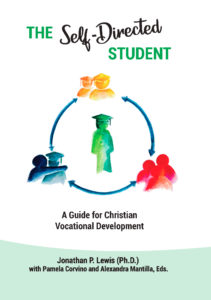Bridging the great disconnect
Most educational programs in the social sciences are designed to deliver general knowledge or understanding. “Experts” deliver content deemed be important or necessary to a student. This content may be helpful to the student’s understanding of important concepts and useful in its eventual application. However, if studies are unrelated to a student’s present needs or challenges beyond the academic exercise, it is unlikely to produce significant learning or contribute meaningfully to the development of occupational competence.
When educational programs don’t allow adult students to pursue the knowledge they need to address real-life challenges, it causes a disconnect between the “ivory tower” and “the workplace.”
A quick search on the Internet will provide you with many sources that are analyzing and addressing this disconnect. The discussions vary in that they point to different aspects of the problem. Some reformers predict that we will soon see a shift away from earned degrees as a predominant variable in hiring practices. They argue that employers are much more open today to hiring those with work and life experience, even if they have no degree.
Untimely and irrelevant learning
Most degree programs bundle a prescribed number of courses together to provide a systematic and/or comprehensive understanding in a field of study. This is a laudable academic end that keeps many academics employed. The required coursework is selected and managed by the educational institution and its minions—an often-political process, It is frequently untimely and potentially irrelevant, even when students are already working.
A young pastor I am mentoring recently commented to me how he wished his program’s courses were relevant to the competencies he is trying to develop as a pastor. One comment I heard years ago whose irony amused me, was from a student who told me he was looking forward to his graduation from seminary so that he could find the time to read his Bible.
The Banking Model
The predominant approach to earning tertiary degrees is predicated on the “banking” mode. It promotes the idea that students can master content that will eventually be useful in their occupations or professions. Schools understand that what students are forced to learn in their programs isn’t currently relevant. They assume that it will be relevant someday as they draw it from their stored memories. The problem lies in that knowledge that isn’t applied is lost, not stored. Genuine understanding comes from experiential or significant learning—as Carl Rogers labeled it.
The term “banking” model was coined by the eminent Brazilian educator, Paulo Freire (Pedagogy of the Oppressed). He denounced it for its top-down approach that continues to dominate the formal educational system. He points out that in the banking model:
- the teacher teaches and the students are taught;
- the teacher knows everything, and the students know nothing;
- the teacher thinks and the students are thought about;
- the teacher talks and the students listen—meekly;
- the teacher chooses the program content, and the students (who were not consulted) adapt to it;
- the teacher confuses the authority of knowledge with his or her own professional authority, which she and he sets in opposition to the freedom of the students; (Freire, Pedagogy of the Oppressed, 1970, p. 73)
Some educators (including myself) would cringe at being described this way. I do affirm Freire’s views that teachers should be co-learners; that learning should focus on real problems; that learning should be practical.
Fixing the disconnect
Ideally, coursework should parallel the development of competence in the workplace. Courses should be informed by the challenges and needs of the student as they face them in a specific context. Undoubtedly, many courses will be valuable to workers at a given moment in the development of their vocation. But the timing must be right. When knowledge isn’t applied, it is unlikely to be useful. It seldom contributes to genuine understanding or generating competence.
When I was young, my father took me hunting. I remember when he taught me how to use a shotgun. On my first time out hunting pheasants in a Nebraska cornfield, I saw a covey of quail under some bushes. In my excitement, I just pointed my gun in their general direction and fired. The blast caused them to explode in flight. To my surprise, I hadn’t hit any of them. My father however, picked off a couple on the wing. Afterwards he explained that even with a shotgun, one must aim carefully if he expects to hit his target. That lesson has stuck with me.
This shotgun approach seldom addresses specific needs. The Self-directed student has the power to select the courses that are needed as they are needed. This approach makes the learning relevant.
Aiming for significant learning
Carl Roger’s work was important in the development of adult learning theory and best practices. He suggested following principles:
- Significant learning takes place when the subject matter is relevant to the personal interests of the student
- Learning which is threatening to the self (e.g., new attitudes or perspectives) are more easily assimilated when external threats are at a minimum
- Learning proceeds faster when the threat to the self is low
- Self-initiated learning is the most lasting and pervasive.
Adults should be allowed to determine what they need to study. Educational programming needs to value and nurture the intrinsic motivation to learn. This comes from empowering a student to address felt needs or interests. In so doing, educators will achieve the highest goal of education: students who know how to address their own learning needs and will continue to do so throughout their lives.
Conclusions
Self-Directed study does not deny the role of expertise in training but addresses the problem of programs that have little apparent relevance to the student’s unique needs, challenges, or interests. Allowing students to be involved in the choice of coursework kindles the power of their own intrinsic drive to meet personal goals. Self-direction taps into their intrinsic design and that is the key to their ultimate personal satisfaction and vocational fulfillment.
Jonathan Lewis (Ph.D. Human Resource Development)

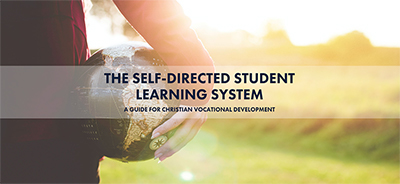
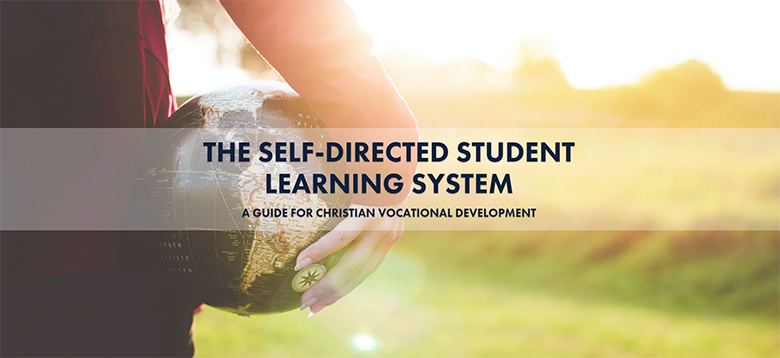



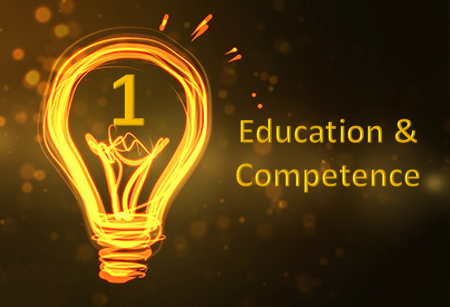
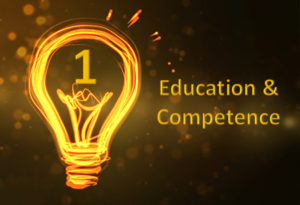 Christianity places a very high value on relationships and mutual service. When speaking of Christian vocational development, we assume that most Christians are motivated to serve in tangible “high-touch” ways that affect people positively. So, while the volunteer spirit is alive and well among us as a people and many are motivated to serve within their gifting, too often the service rendered is subpar or unproductive due to the lack of a good gift match, or because of a lack of training. Some of us get off to a good start but find ourselves floundering mid-career. If those serving either as unpaid volunteers or paid members of staff are not competent, the whole body suffers. How then do we address the need to develop highly effective servants?
Christianity places a very high value on relationships and mutual service. When speaking of Christian vocational development, we assume that most Christians are motivated to serve in tangible “high-touch” ways that affect people positively. So, while the volunteer spirit is alive and well among us as a people and many are motivated to serve within their gifting, too often the service rendered is subpar or unproductive due to the lack of a good gift match, or because of a lack of training. Some of us get off to a good start but find ourselves floundering mid-career. If those serving either as unpaid volunteers or paid members of staff are not competent, the whole body suffers. How then do we address the need to develop highly effective servants?
 Our Creator has given each of us a unique inherent design to follow in order to develop into the persons that we are intended to become. Just as individuals have a unique genetic code that results in unique physical features (some exclusively ours like fingerprints and irises), everyone’s vocational design is also individualized and distinct. While perhaps less easily identified than physical traits or personality, evidence of this design is apparent in those who are confident, content, and successful in their vocational service in contrast to their counterparts who feel confused as to who they really are and unfulfilled in what they do.
Our Creator has given each of us a unique inherent design to follow in order to develop into the persons that we are intended to become. Just as individuals have a unique genetic code that results in unique physical features (some exclusively ours like fingerprints and irises), everyone’s vocational design is also individualized and distinct. While perhaps less easily identified than physical traits or personality, evidence of this design is apparent in those who are confident, content, and successful in their vocational service in contrast to their counterparts who feel confused as to who they really are and unfulfilled in what they do.
 Welcome to Go Global Network! We are about exploring a new revolution in learning using the vast resources of the Internet. We believe all ministry training organizations need to wake up to these explosive opportunities.
Welcome to Go Global Network! We are about exploring a new revolution in learning using the vast resources of the Internet. We believe all ministry training organizations need to wake up to these explosive opportunities.
